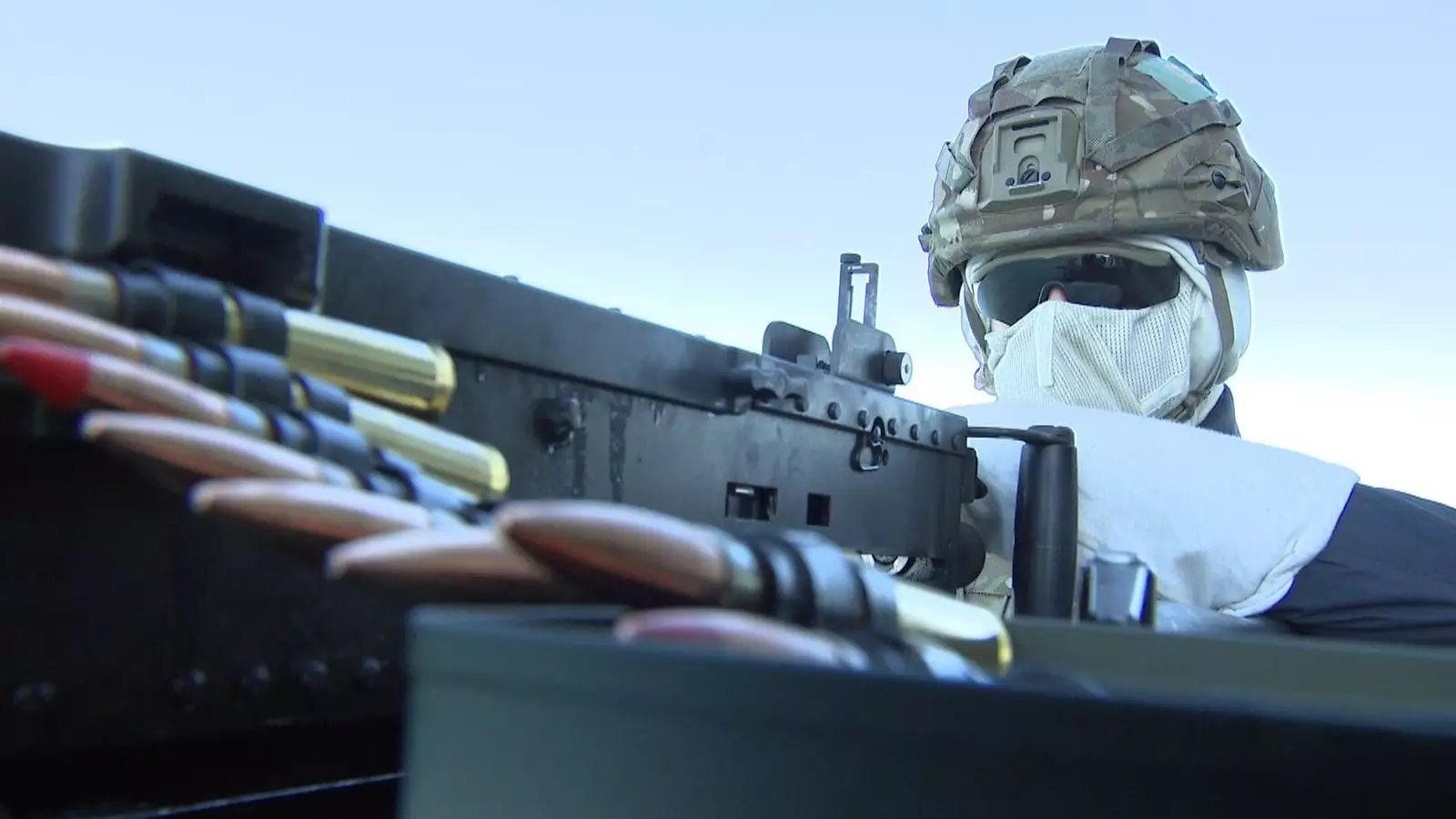Amid escalating global tensions and persistent threats from emerging warfare tactics, the Royal Navy finds itself navigating uncharted waters. The recent training exercise aboard HMS Dauntless starkly illustrates a reality that is both alarming and revealing. With enemy drones and unmanned vessels no longer confined to the realms of science fiction, the naval landscape is evolving, and so must our understanding of this new maritime narrative. The spectacle of technologically advanced naval warfare plays out while questions loom large over defense strategies and budget allocations — raising critical concerns about whether the UK is truly prepared for the challenges ahead.
Preparation vs. Reality: A Fragile Balance
When watching the crew aboard the Type 45 destroyer spring into action, a proud display of readiness resonates. Yet beneath this veneer of preparedness lies an unsettling truth: the UK’s military capabilities are facing systemic vulnerabilities. While Defense Minister Luke Pollard asserts that the Royal Navy possesses “formidable capabilities” to protect itself and the carrier task force from potential threats, does this declaration hold water against the backdrop of a shrinking navy, a casualty of years of underinvestment? The exercises may reflect confidence, but the reality is fraught with discrepancies between training drills and actual combat readiness — especially in a volatile theater like the Indo-Pacific, where Iranian-backed forces and drone warfare pose real threats.
Naval Power: An Illusion of Security?
The rhetoric surrounding naval strength often paints a picture of unmatched superiority. The advantage of naval power is undeniably significant, providing options for operational flexibility and strategic positioning. However, the effectiveness of these options is called into question when observed through the lens of current geopolitical strife. Questions have arisen regarding the potential complicity of the UK in U.S. military aggressions, such as a possible strike against Iran. Would the UK act in self-defense or as a willing partner under the banner of shared interests? Such dilemmas complicate the notion of maritime power, challenging our understanding of national security and the ethical implications surrounding military support.
The Growing Threat of Uncrewed Systems
One of the most pressing developments in contemporary warfare is the rise of drones and unmanned vessels. Observing the rapid evolution of drone technology in the ongoing conflict between Ukraine and Russia highlights the effectiveness of these new tools in naval engagements. The exercise aboard HMS Dauntless prominently featured these emerging threats, reinforcing the need for real-time adaptations in defense strategies. As the training scenarios indicated, traditional means of warfare may soon find themselves outmatched by systems designed for nimbleness and surprise. How does an advanced navy counter a threat that operates outside conventional frameworks? This query underlines the urgency for new tactical thinking — one that merges innovative technologies with traditional naval doctrines.
The Budget Battle: Defense Spending in a Time of Cuts
In a world that increasingly necessitates robust defensive strategies, the Royal Navy’s predicament is made starker by financial constraints. The government’s ambitious plan to raise defense spending to 2.5% of GDP by 2027 has been met with skepticism. The international landscape is shifting faster than budgets can adapt, and many within defense circles argue that the proposed increase fails to keep pace with the threats we face. As the crew of Dauntless undertook their exercises, did they carry with them not only weapons but also the weight of a constrained budget? The specter of financial limits looms large, threatening not just capabilities but the very fabric of national defense.
A Call for Urgency and Transparency
In examining the nuances of this evolving theater of warfare, it becomes clear that the UK must confront an imperative: to amplify its commitment to naval power while ensuring responsible and transparent deployment of its forces. As the world witnesses the interplay of traditional and novel warfare strategies, the imperative is not just a matter of financial investment but also of innovative foresight. Will the UK’s leadership rise to the occasion, crafting a narrative that embraces both technological advancement and ethical diplomacy? Reflecting on the realities of naval warfare today compels a reevaluation that goes beyond mere preparedness; it presses for a united front that engages the complexities of a transformative era in global defense.

